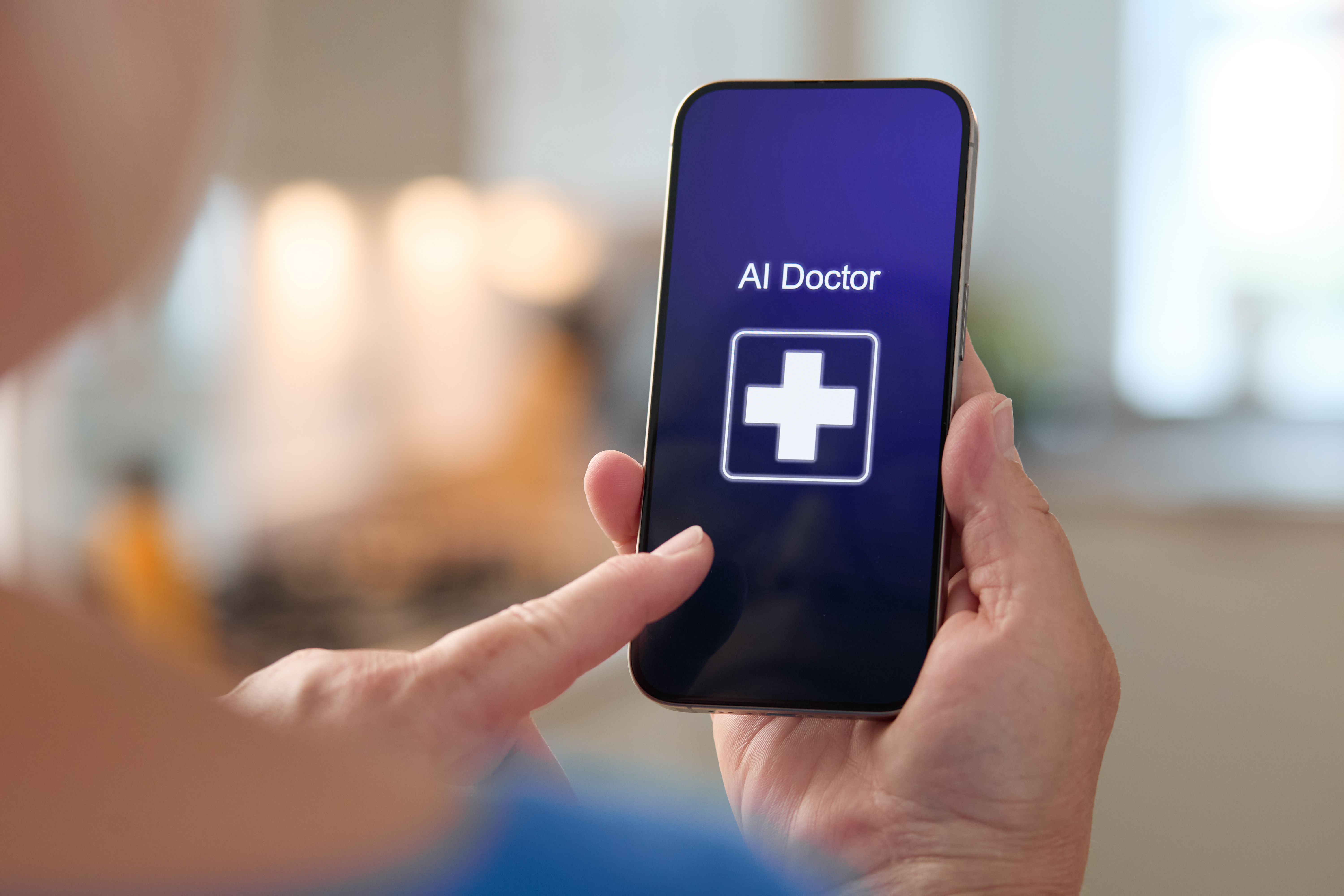Questions to Ask Your Doctor About AI-Powered Health Diagnostics
The advent of artificial intelligence (AI) in healthcare has revolutionized the way medical diagnostics are conducted. From predicting disease outbreaks to personalizing treatment plans, AI is transforming healthcare delivery. However, as these technologies become more integrated into clinical practice, patients and healthcare providers face a multitude of questions regarding their use and implications. Understanding AI's role in health diagnostics requires a comprehensive exploration of its capabilities, limitations, and ethical considerations. This article delves into the critical questions patients should discuss with their doctors to navigate AI diagnostics effectively. By examining these questions, we aim to empower individuals to make informed decisions about their healthcare, ensuring that AI serves as a beneficial tool rather than a source of confusion or mistrust.
1. Understanding the Role of AI in Diagnostics

AI's role in diagnostics is multifaceted, encompassing everything from image analysis to predictive analytics. Machine learning algorithms can analyze vast amounts of data faster and often more accurately than human practitioners, offering insights that might otherwise be missed. For instance, AI can detect subtle changes in imaging scans that signal the early stages of diseases like cancer, potentially leading to earlier interventions and better outcomes. However, while AI can enhance diagnostic accuracy, it is not infallible. Algorithms are only as good as the data they are trained on, and biases in data can lead to misdiagnoses. It's crucial for patients to understand that AI should complement, not replace, the expertise of healthcare professionals. Engaging with doctors about how AI is used in their diagnostic processes can help patients appreciate the technology's benefits while remaining aware of its limitations.
2. Evaluating the Accuracy of AI Diagnostic Tools

Accuracy is a cornerstone of effective diagnostics, and AI tools are no exception. Patients should inquire about the accuracy rates of AI-driven diagnostic tools used in their care. These rates can vary significantly depending on the condition being diagnosed and the quality of the data used to train the AI. For example, AI systems used in radiology might boast high accuracy rates due to the large datasets available for training, while those used for rarer conditions might not perform as well. Doctors should be able to provide information on the validation studies conducted for the AI tools they use, including any peer-reviewed research supporting their efficacy. Understanding these details can help patients gauge the reliability of AI diagnostics and make more informed decisions about their treatment options.
3. Addressing Bias in AI Algorithms

Bias in AI algorithms is a critical issue, particularly in healthcare, where it can lead to unequal treatment outcomes. AI systems trained on datasets that lack diversity may not perform well across different populations, potentially exacerbating health disparities. For instance, if an AI diagnostic tool is trained primarily on data from one ethnic group, it may not accurately diagnose conditions in individuals from other ethnic backgrounds. Patients should discuss with their doctors how these biases are addressed and what steps are taken to ensure that AI tools are equitable. This includes understanding how data diversity is incorporated into AI training processes and what measures are in place to monitor and mitigate bias. By raising these questions, patients can advocate for more inclusive and fair healthcare practices.
4. The Ethical Implications of AI in Healthcare

The integration of AI in healthcare raises numerous ethical questions. Issues such as patient consent, data privacy, and the transparency of AI decision-making processes are paramount. Patients should be informed about how their data is used to train AI systems and what measures are in place to protect their privacy. Furthermore, the opacity of AI algorithms, often referred to as the "black box" problem, can make it difficult for patients to understand how decisions are made. Doctors should be prepared to explain the ethical frameworks guiding the use of AI in their practice, ensuring that patients are comfortable with the technology's implications. Engaging in these discussions can foster trust and transparency, essential components of the patient-doctor relationship.
5. Navigating the Doctor-Patient Relationship in the Age of AI

AI's integration into healthcare has the potential to alter the traditional doctor-patient relationship. While AI can provide valuable insights, it is essential for patients to maintain open communication with their healthcare providers. Doctors should act as interpreters of AI-generated data, helping patients understand the implications for their health. Patients, in turn, should feel empowered to ask questions about how AI influences their diagnosis and treatment plans. This dialogue is crucial in ensuring that AI serves as a supportive tool rather than a barrier to effective communication. By fostering a collaborative relationship, patients and doctors can work together to harness the full potential of AI while maintaining the human touch that is central to healthcare.
6. The Importance of Continuous Learning and Adaptation

As AI technology evolves, continuous learning and adaptation are essential for both patients and healthcare providers. AI systems are constantly being updated with new data and algorithms, which can affect their performance and capabilities. Patients should inquire about how their healthcare providers stay informed about the latest developments in AI diagnostics. This might include ongoing training programs, participation in research studies, or collaboration with AI experts. By understanding how doctors keep their knowledge up-to-date, patients can be reassured that they are receiving care informed by the latest advancements. Likewise, patients should be encouraged to educate themselves about AI in healthcare, enabling them to engage in more meaningful discussions with their providers.
7. The Role of AI in Personalized Medicine

AI has the potential to revolutionize personalized medicine by tailoring treatments to individual patients based on their unique genetic, environmental, and lifestyle factors. This approach can lead to more effective and efficient care, minimizing trial-and-error prescribing and reducing adverse drug reactions. Patients should discuss with their doctors how AI is used to personalize their treatment plans and what factors are considered in this process. Understanding the role of AI in personalized medicine can help patients appreciate the benefits of this approach while being mindful of its limitations. By engaging in these conversations, patients can play an active role in their healthcare, ensuring that their treatment plans align with their personal needs and preferences.
8. Preparing for the Future of AI in Healthcare

The future of AI in healthcare promises exciting advancements, but it also presents challenges that must be navigated carefully. Patients should discuss with their doctors what the future holds for AI diagnostics and how they can prepare for these changes. This might include exploring new diagnostic tools, understanding emerging trends in AI research, or considering how AI might impact their long-term healthcare plans. By staying informed about the future of AI in healthcare, patients can be proactive in their care, embracing new technologies while remaining vigilant about their potential risks. This forward-thinking approach can help patients and healthcare providers work together to ensure that AI continues to enhance, rather than hinder, the delivery of quality healthcare.
9. Collaborating with AI Experts and Multidisciplinary Teams

Effective integration of AI in healthcare often requires collaboration between healthcare providers and AI experts. Patients should inquire about how their doctors work with multidisciplinary teams to implement AI diagnostics. This collaboration can enhance the accuracy and reliability of AI tools, ensuring that they are used effectively in clinical practice. By understanding the team-based approach to AI integration, patients can gain confidence in the diagnostic process and trust that their care is informed by a diverse range of expertise. Additionally, patients should feel comfortable asking how these collaborations impact their care and what role they play in decision-making processes. This transparency can foster trust and ensure that patients remain active participants in their healthcare journey.
10. The Impact of AI on Healthcare Costs

AI has the potential to reduce healthcare costs by improving diagnostic accuracy and efficiency. However, the implementation of AI technologies can also be expensive, raising questions about cost-effectiveness and accessibility. Patients should discuss with their doctors how AI impacts the cost of their care and what measures are in place to ensure affordability. This might include exploring insurance coverage for AI diagnostics, understanding the cost-benefit analysis of using AI tools, or considering alternative diagnostic options. By engaging in these discussions, patients can make informed decisions about their care, balancing the benefits of AI with their financial considerations. This awareness can help ensure that AI serves as a tool for improving healthcare access rather than exacerbating existing disparities.
11. Ensuring Patient-Centric AI Solutions

Patient-centric care is a fundamental principle of healthcare, and AI diagnostics should align with this philosophy. Patients should inquire about how AI tools are designed with their needs and preferences in mind. This might include exploring how AI systems incorporate patient feedback, how they are tailored to individual health goals, and what measures are in place to ensure that AI solutions are user-friendly. By understanding how AI aligns with patient-centric care, patients can feel confident that their values and preferences are respected in the diagnostic process. This alignment is crucial in ensuring that AI serves as a supportive tool, enhancing the patient experience rather than detracting from it.
As AI continues to reshape healthcare, patients must be empowered to engage with these technologies effectively. By asking critical questions and fostering open communication with their healthcare providers, patients can ensure that AI serves as a tool for enhancing their care. This article has explored the key questions patients should discuss with their doctors, from understanding AI's role in diagnostics to addressing ethical and cost considerations. By engaging in these discussions, patients can make informed decisions about their healthcare, ensuring that AI serves as a beneficial tool rather than a source of confusion or mistrust. As we navigate the AI era, patient empowerment and collaboration with healthcare providers will be crucial in ensuring that AI enhances, rather than hinders, the delivery of quality healthcare.